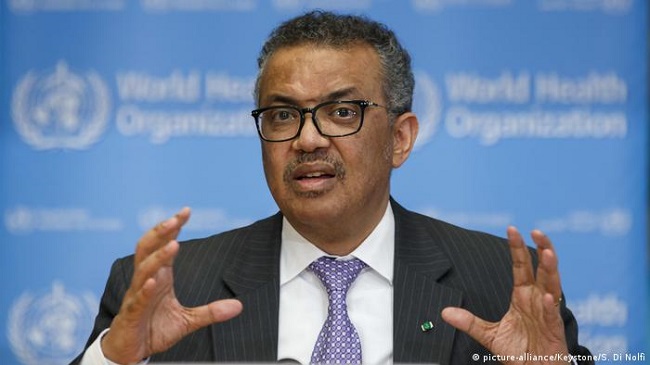Coronavirus is the deadliest viral outbreak we’ve seen in over a century, but it may not be the last in our lifetime.

Experts have warned zoonotic diseases – spreading from animals to humans – comprise nearly 75 per cent of emerging diseases. Additionally, the World Health Organisation (WHO) lists an influenza pandemic and other high-threat viral diseases such as Ebola and dengue among the top 10 biggest threats to public health.
The question of another global health crisis is not if, but when.
Yet despite the imminent threat, the 2021 Global Health Security Index estimates all 195 countries remain dangerously unprepared for future pandemics. Additionally, only 33 countries have emergency preparedness and response plans in place that include considerations for vulnerable populations.
Our collective failure to invest in preventative measures means that when diseases appear they can rage out of control, destroying lives and triggering massive health crises that take decades to resolve.
We can either allow this information to scare us, or we can use it to prepare us. And one urgent policy solution for preventing disease is universal access to water, sanitation and hygiene.
From May 18 to 19, 2022, the Sanitation and Water for All partnership, together with UNICEF, will bring together government ministers of water, sanitation, health, climate and the economy, including Suleiman Hussein Adamu, the Minister of Water Resources, and Sharon Ikeazor, the Environment Minister of State at a Sector Ministers’ Meeting hosted by the Government of Indonesia in Jakarta, Indonesia. High on the list of priorities will be how to stop infectious disease, through investment in water, sanitation and hygiene, as well as through vigorous action on climate change.
Hygiene is perhaps the most obvious tool in the belt. Last year the World Economic Forum estimated that handwashing with soap and clean water lowered the risk of contracting COVID-19 by 36 per cent.
However, at the onset of the COVID-19 pandemic, three in 10 people worldwide, and two in three people in least developed countries, could not wash their hands at home. Additionally, one in four health care facilities currently lack basic water services, and one in three lacks hand hygiene stations at points of care.

When a leading recommendation for containing a deadly virus is such a simple step, it is unconscionable to deny one third of the world’s population this basic level of protection. And perhaps the biggest lesson of this pandemic is that our communities are only as healthy as our most vulnerable members.
Access to clean water is also vital to disease prevention beyond COVID-19. Nearly 1.8 billion people use contaminated drinking water, putting them at risk of contracting cholera, dysentery, polio and typhoid fever.
Antimicrobial drugs prescribed for infectious disease enter water sources via wastewater, run-off and sewage, spreading drug-resistant organisms and antimicrobial resistance. Insufficiently treated wastewater compounds the problem by failing to neutralize antibiotic resistant bacteria.
Alarmingly, only 8 per cent of wastewater in low-income countries undergoes treatment of any kind and experts estimate that over 80 per cent of discharged wastewater worldwide is untreated. This can have severe impacts on human health, not only through antibiotic-resistant pathogens, but also through outbreaks of food, water and vector borne diseases.
For example, inadequate management of waste was one of the attributing factors of Ebola transmission in West Africa, contributing to the deaths of thousands. The WHO has recommended water and sanitation improvements as a vital first line of defence.
However, our sanitation services are not just vital to stopping the spread of disease, but also to understanding its impact. As COVID-19 test shortages hamper reporting processes, faecal matter has provided a vital indicator of the pandemic’s spread. According to health professionals at the University of California, San Diego, wastewater analysis alerted researchers to about 85 per cent of COVID-19 cases in university housing before they were diagnosed, helping them to stop further infection.
Leaders and decision-makers have a choice. Our mistakes during COVID-19 have demonstrated the immense cost of inaction, but we have the wisdom to learn from them. We can invest heavily in pandemic prevention and mitigation – including ensuring that communities everywhere have access to clean water and reliable hygiene and sanitation services. Or we can ignore the catastrophic lessons learned, placing the world at grave risk for future public health threats.
And we do not have to wait for the next pandemic to take action. There are other global health crises happening right now, responsible for the deaths of millions, that can be solved by prioritising the provision of safe water, sanitation and hygiene services.
From cholera to coronavirus, the message for government leaders is clear: if we want to get ahead of the next pandemic, we must urgently invest in water, sanitation and hygiene. To make any other choice could have devastating consequences.
By Catarina de Albuquerque, CEO, Sanitation and Water for All (SWA)
